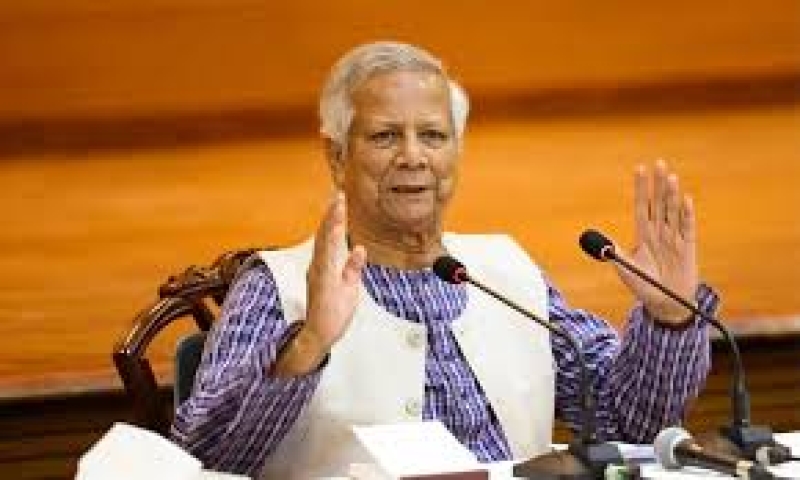- Power generation at Payra Thermal Power Plant 1st unit starts after a month |
- Irregularities, injustice will no longer be accepted in politics: Jamaat Ameer |
- 2 arrested in Jhenaidah for allegedly selling madrasa student |
- Koko’s wife campaigns for Tarique in Dhaka-17 |
- Bangladeshi Expats Cast 4.58 Lakh Postal Votes |
Prof Yunus Calls for New Economic Zone in South Asia

Chief Adviser Professor Muhammad Yunus. File Photo
Chief Adviser Professor Muhammad Yunus today emphasized the importance of establishing a new economic zone that includes Bangladesh, India, Nepal, and Bhutan.
"The process has already begun, but it should be accelerated to make this economic zone a reality," he said at a program hosted by the Bangladesh Administrative Service Association (BASA) at the Bangladesh-China Friendship Centre in Dhaka.
Finance Adviser Dr. Salehuddin Ahmed, Law Adviser Dr. Asif Nazrul, Information and Broadcasting Adviser Md. Nahid Islam, Cabinet Secretary Dr. Sheikh Abdur Rashid, and BASA President Md Nazrul Islam also spoke at the event.
Professor Yunus highlighted Bangladesh’s immense potential, noting its strategic location between two rapidly developing neighbors, India and China. He stressed that if Bangladesh leverages its marine resources, it could make significant economic strides, adding that Nepal's potential to export hydropower is another opportunity.
"While India currently does not allow power imports from Nepal, we hope they will permit us to use their land for mutual economic benefit," he said. Yunus also suggested that if Bangladesh could use Indian land more broadly, its economic growth would be unstoppable.
He further proposed the development of marine ports along Bangladesh's coastline, from Cumilla to Teknaf, along with a deep seaport in Matarbari, to boost the economy. "If we offer ports for global shipping, who could stop us?" he asked.
Professor Yunus noted that while there is an economic zone in South Asia, it has not yet been fully realized. He pointed out that landlocked countries like Nepal and Bhutan, as well as India's northeastern states, lack seaports. He believes that a new economic zone could unlock significant trade opportunities for all neighboring countries, allowing goods to flow directly between Bangladesh, Nepal, Bhutan, and the Indian northeastern states.
"In terms of geography, Bangladesh is incredibly fortunate," he concluded.

